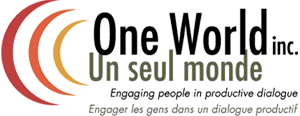Sharing Knowledge – Protect the Welfare of Community-Based Programs
 I’ve worked with a lot of organizations and networks developing community-based programs that seek to address complex issues such as homelessness and youth involvement in gangs. There’s no shortage of knowledge among those working on these issues on the frontlines. What’s often lacking, however, is the translation of this day-to-day expertise into useable knowledge. The professionals work in silos, rather than contributing to a collective body of knowledge that could move the field forward as a whole.
I’ve worked with a lot of organizations and networks developing community-based programs that seek to address complex issues such as homelessness and youth involvement in gangs. There’s no shortage of knowledge among those working on these issues on the frontlines. What’s often lacking, however, is the translation of this day-to-day expertise into useable knowledge. The professionals work in silos, rather than contributing to a collective body of knowledge that could move the field forward as a whole.
This difficulty became apparent to me while working with community health centres. There’s a large network of community health centres in Canada, and each has an individual wealth of expertise. But capturing the collective learning of these centres, one incorporating the entire network, is missing. Sure, each centre can each tell stories about what they’re doing, which is a start, as stories can give people inspiration and ideas. The problem is that you won’t learn a lot listening to somebody else tell a story. Crucial bits of understanding are missing, such as why they chose the directions they did and what lessons they learned along the way.
In order to set these groups up for success, we really need to ask the difficult questions that will lead us to real answers, record them, and start to build that knowledge into a resource for the community health centres. These are the critical questions:
- What inputs would make this process work better?
- How can we collectively work together to do this work better?
- What are the challenges of working with multiple groups, organizations and/or stakeholders?
- How do you transfer knowledge from one group to the next? Is storytelling the only option or even the best option?
To really move a field forward, it’s necessary to go beyond telling stories and have deeper conversations to figure out how organizations can learn from each other. This is especially crucial in a field like community-based health promotion, where issues are often complex and there isn’t a defined learning path. Whereas there’s a lot of training and support for someone pursuing a career as a doctor or nurse, for example, the same is not true for others in the community health field. We need to find better ways to learn from each other, share that knowledge and collectively create a better resource for the whole industry.
